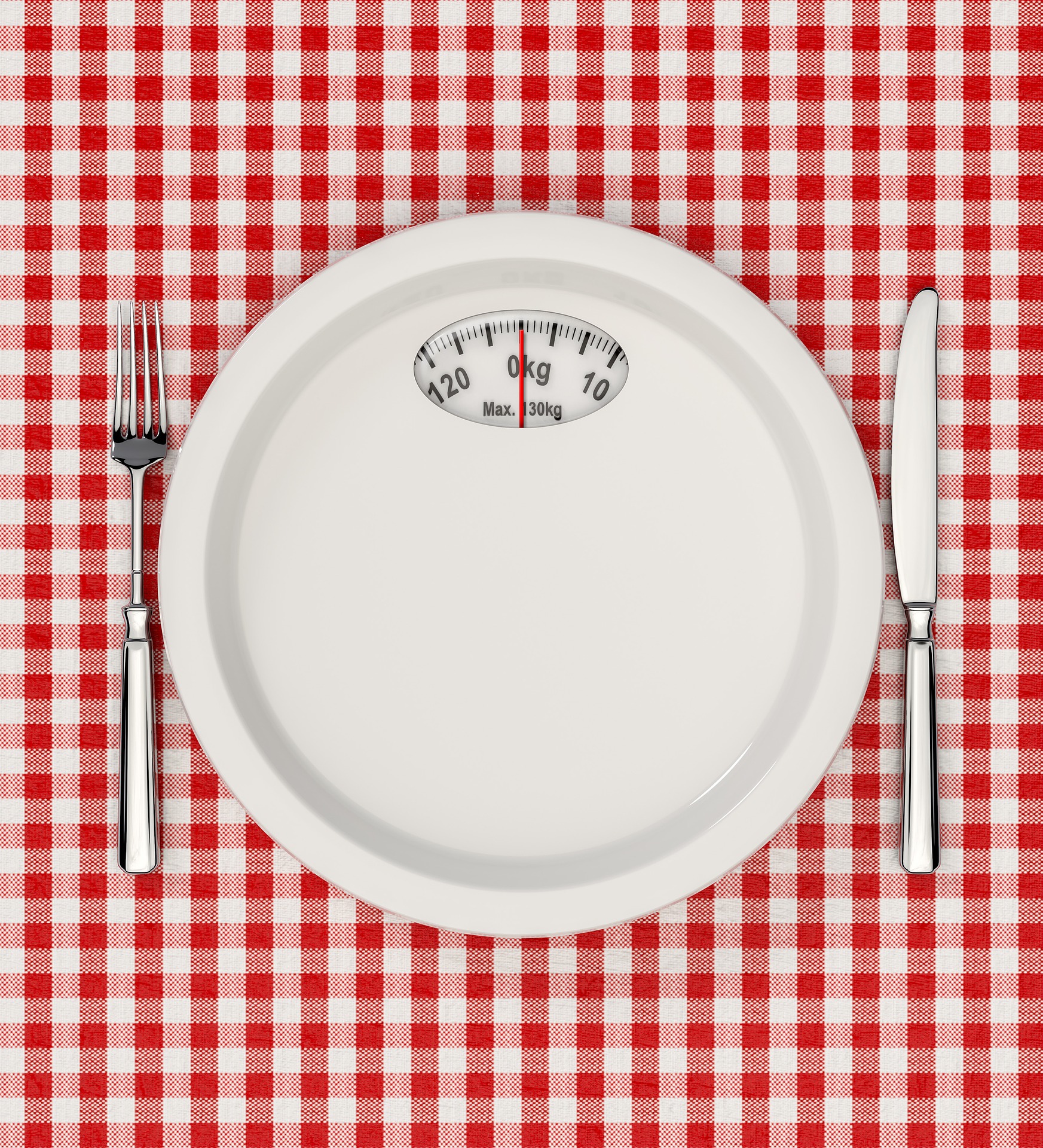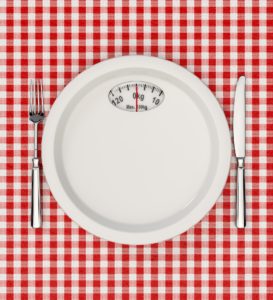

When most people hear the term “fasting” it conjures up images of the painful preparation for a major surgery or a religious practice where believers deprive themselves of food to the point of hallucinating. While both activities have their uses, in this article we will be discussing intermittent fasting; what it is, how it can aid in your weight loss journey, and how to safely practice it.
What is IF?
So what exactly IS intermittent fasting other than the latest health conscious buzzword? Simply put, it’s a pattern of eating that cycles between periods of eating and deprivation in order to force your body to burn more fat for fuel.
Although it has gained more notoriety in the last few years, the concept of IF has been around since ancient times. Many civilizations throughout history practiced intermittent fasting mainly because food was not readily available as it is now. Even the animal kingdom knows this trick which is why a good number of species opts to hibernate in the lean months.
Two Steps Forward, One Step Back?
“But we have come so far from the days of foraging for berries and spear fishing, are you suggesting we intentionally deprive ourselves of food now?’’ Yes. Yes I am. And the reason being is with the invention of preservatives and processed foods, humans no longer eat clean on a consistent basis. A new government report published in February 2020 states that 40% of Americans are obese with 1/10 being MORBIDLY obese! We aren’t talking just a few vanity pounds here because to be considered “obese” for men, a percentage of body fat greater than 25% defines obesity, with 21-25% being borderline. For women, over 33% defines obesity, with 31-33% being borderline. Those numbers are HUGE, pun intended!
There are many factors that contributed to us becoming overly opulent aside from the food we eat and most of it has to do with modern conveniences. It’s not enough that we eat subpar food, but we can find that sloppy triple quarter pounder on any corner, 24-7. We also tend to spend more time being sedentary in our jobs or on social media, so the body runs at a slower pace since we are only exercising our fingers. Additionally, air conditioning and inside activities bring on the bulge since we aren’t sweating in the fields like our ancestors did.
Why Does IF Help Me?
How does intermittent fasting help undo all this extra baggage simply by not eating? Well, when you don’t eat for a while, several things start to happen in your body. Insulin levels DECREASE significantly which aids in fat burning, while human growth hormones (HGH) INCREASE to facilitate fat burning and muscle growth. One a cellular level genes and cells begin repair processes such as removing waste material from cells and undoing damages to the cell structures. (See some of our more in depth articles on cell adenopathy for a deep dive on this subject) Also, intermittent fasting enhances hormone function to facilitate weight loss because lower insulin levels, higher growth hormone levels and increased amounts of norepinephrine (noradrenaline) all increase the breakdown of body fat and facilitate its use for energy.
How Can I Practice IF?
There are several different ways of doing intermittent fasting — all of which involve splitting the day or week into eating and fasting periods. Some of the more popular choices are the 16/8 method (fasting for 16 hours and limiting yourself to an 8 hour eating window during the day) the alternate day method (fast 24 hours then eat for 24 hours twice a week) or cutting back your caloric intake to a meager 500 calories per day, three times a week.
Personally, if you are a beginner to this lifestyle, I would suggest starting with a 12/12 rotation to ease your body into the transition. What a lot of health and wellness sites will not tell you is that if you shock your system too severely then you can actually have the reverse effect and GAIN weight. This happens because your body believes it is starving so it will naturally go into survival mode and store every last calorie you ingest as fat.
Why would someone leave out this crucial piece of information, you ask? Because unfortunately fat burning supplements make a company more money than the advice they provide, and if they can convince you that you can get the results who wish faster and better by popping a magic pill, then it’s in their best interest to make outrageous claims. I myself have been sucked in more times then I would care to admit, so you can trust my opinion on this. Supplements are a great add on (hence the name) but if there is one out there that lets you sit on the couch and eat Bon Bon’s while the fat melts away, I have yet to find it.
But Wait!
Before you begin make sure you are physically capable of participating in an intermittent fasting plan. If you take prescription medications talk with your doctor on the effects fasting may have as there will be times you will need to take your medication on an empty stomach.
Once you are ready to proceed, begin your fasting with a 12 hour overnight fast. Eat dinner as early as possible (before 7 preferably) then simply do not eat for 12 hours past that point. The highlight of this option is the fact that most of your fasting time will be spent sleeping so your brain won’t be playing mind games with you.
BREAKfast
When you are ready to break your fast (BREAKfast….hmmm, coincidence?) don’t celebrate by gorging yourself on a box of bagels, but rather, keep up the momentum by having a protein packed meal like the ones listed in this book by Countrymen Press. Congratulations! That was day one! Not so scary, right?
Depending on how much weight you need to lose, you can do this 12/12 fast 3 to four times a week to start, with non-fasting days allowing you to eat as normal. Many people opt for a 5/2 rotation and take the weekends off because it seems easier to not focus on food while you are distracted with work, but during off times it can quickly become a battle of mind over matter.
Slow and Steady Wins The Race
Keep in mind that this is not a fast track to weight loss and consistency is the key. If you just participate in fasting alone you will achieve results in months rather than weeks, but that’s okay! Experts have proven that losing 1-2 pounds a week will have lasting effects whereas a rapid drop in weight means an even faster return if you resume your previous lifestyle. (You can carry up to 10 pounds in water weight alone!) If you are super motivated and DO want an amped up weight loss option that couples fasting with a diet and exercise plan check out this awesome system that I have used in the past. (Click here for more)
After a few weeks you should be able to say you have mastered the 12/12 fast so pat yourself on the back, you are doing great! It’s time to kick it up a notch and go for the 16/8 version to intermittent fasting. You have two options here. If you are like me and need to eat in the morning so you can take vitamins or meds, then your last meal should be at 3pm and you resume eating the next morning at 7am. Otherwise you would go from 7pm to 11 am the next morning.
What Can I Eat or Drink While Fasting?
While you are refraining from food you should still keep your hydration levels up to avoid water retention and the subsequent puffiness. A neat trick I learned when I first started IF was to put a pinch of Pink Himalayan Sea Salt in my water bottle to ensure your electrolytes remain stable. Himalayan Salt is also a good source of potassium and magnesium that helps to alleviate muscle cramping, amongst other things. More beverages you can consume will fasting include:
- Bone Broth (great source of protein!)
- Green or black tea; no sugar or cream
- Black coffee
- Sparkling water
You will begin to notice as time goes on that the longer you go without food the more energy you will have and the better you will feel. This is thought to be attributed to autophagy (the body’s ability to repair itself). Fasting allows the body to burn body fat (in the form of ketones) for fuel, providing a good source of energy, and may ultimately result in reduced body-fat stores. Your blood pressure and blood glucose levels will return to normal range, and you will see a significant reduction of inflammation in every part of your body.
Fasting Is Just One Aspect
Bear in mind that intermittent fasting is usually just one aspect of an entire lifestyle change. If you fast for a while then resume gorging on pizza and beer, you cannot expect the changes you made to stick. Additionally, adding an exercise plan and a low carb diet will provide a triple power punch to guarantee the best results. Look for follow up articles from us on each of these subjects or check our archives for previous posts. If you are interested in some of the literature available on intermittent fasting be sure to check out the titles below this article and best of luck, I know you can do it!
-Live Clean and Save Green-
All content found on keepthemcozy.com including text, images, audio, or other formats, were created for informational purposes only. The content is not intended or implied to be a substitute for professional medical or mental health advice, diagnosis, or treatment. Additionally, we may receive a small commission for recommended products, but not enough to sway us from honest opinions. Read our full disclosure here.


Good information! You also make the transition to IF sound less scary and more doable. I think I’m going to try it! Thank you!
I have been doing IF for about a year and a half. I’ve lost close to 40 pounds. Keep up the work. It’s worth it.
Great information! I have been considering giving IF a try, your article makes it seem do-able. Thanks!
Really interesting read! I’m not sure if I could handle the 16/8 plan, but I think I already do the 12/12 on accident sometimes! This is definitely worth tracking in my health journal to see if I notice a difference when I do, or to try implementing it more seriously!
Test
So much great information. I just recently started fasting and I’m liking it so far.
So interesting! I may give this a try 😊